Photography
Related: About this forumMy Christmas present-
http://www.pcworld.com/product/584322/panasonic_lumix_dmclx5.htmlWooHoo!
Happy-tappy dancing feet!
handmade34
(22,756 posts)Happy photo taking ![]()
Mira
(22,380 posts)now I expect to see you in the photo forum bearing "gifts". I still remember the first photo I ever posted...
it gets real easy after that.
cyrakitty
(32 posts)I got a Infrared Filter (R-72) HD Multi-Coated by Opteka. However every time I try to use it the photo is black. Am I doing something wrong? Please help someone!!
Thanks!
handmade34
(22,756 posts)I can't but because i am always looking to learn something new, I did a little search... you MUST share with us when you get it worked out!
http://www.dpreview.com/articles/7860067672/infrared-portraiture-beyond-the-edge-of-darkness
http://dpfwiw.com/ir.htm
I will check out the links. I am excited about getting it figured out. And thanks for the encouragement - I will certainly post when I get it working.
postatomic
(1,771 posts)If not, what kind of camera is it that you trying to use a R-72 filter on?
The Limux (Panasonic) sensor is Infrared protected but you can still take infrared photos with it (if this is your camera). You need to set your ISO as low as it will go, open the aperture all the way (using Aperture Priority or Manual setting), set you metering to center weighted, and use a tripod because even on a bright sunny day you will be taking a 1+ second exposure.
If you use average default metering the Limux will 'fog' badly if you try using the R-72.
If you don't have a Limux tell me what kind of camera you have and I can help you.
cyrakitty
(32 posts)You are a wealth of information - thank you!!
My camera is a Canon EOS Rebel XS. I was able to figure that I needed to change the ISO but I didn't know about changing the aperture as well. When I tried shooting with ISO 1600 I was able to get one or two shots but they were red.
Any further help is greatly appreciated. Thank you ![]()
postatomic
(1,771 posts)Canon has a strong IR filter and requires a little fancy footwork.
I check all my digital cameras to see how they handle IR and the Canon DSLR is not the greatest. For IR I do quite a bit of film and use an old Canon EOS 620, but you can get IR images with a Canon DSLR.
I did a quick and dirty example for you today while I was out 'good will hunting'. I used a Canon DSLR. The first image is a neutral image. You need to use a tripod and you'll need to use manual settings. The first image was done at ISO 100 and f/8. After you get your focus set you need to carefully screw on the R72 filter. The second image was done at ISO 100, f/8, and a 20 second exposure with the R72 filter. You'll need to switch to manual on your camera because aperture or shutter priority will not work. You have to do your own 'metering' because the camera can't do it. This is your IR image. The third image is just a basic B&W conversion.
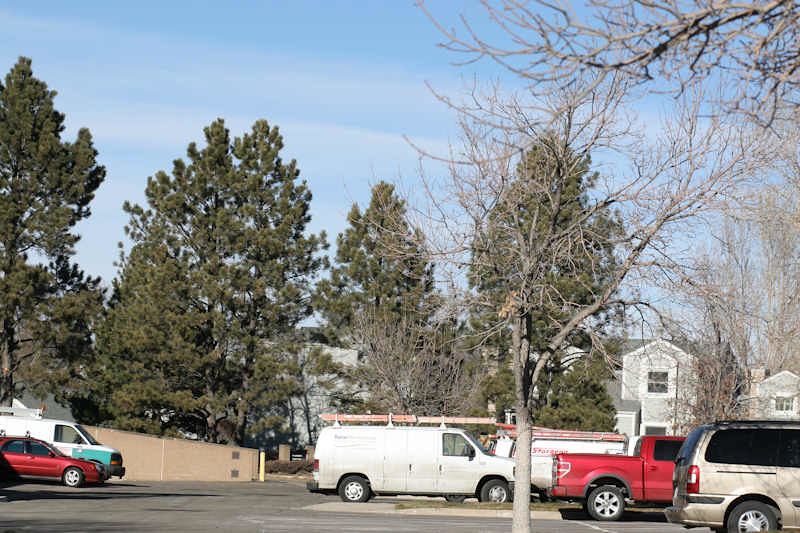
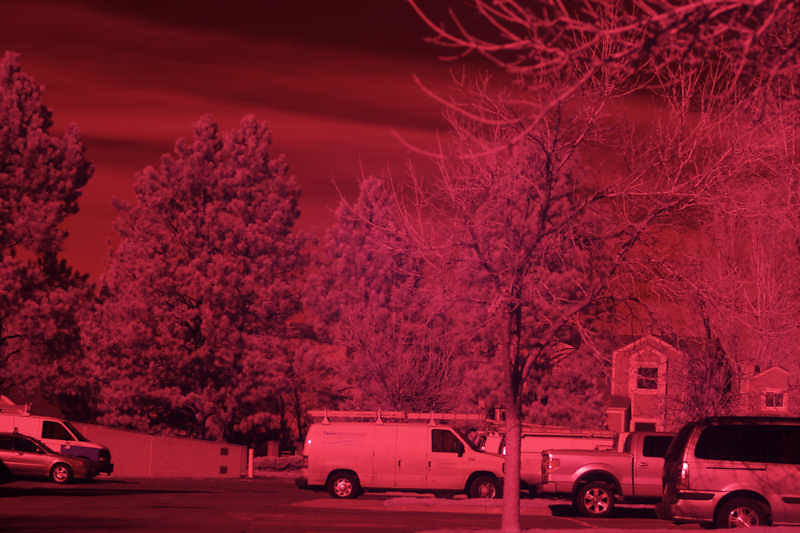
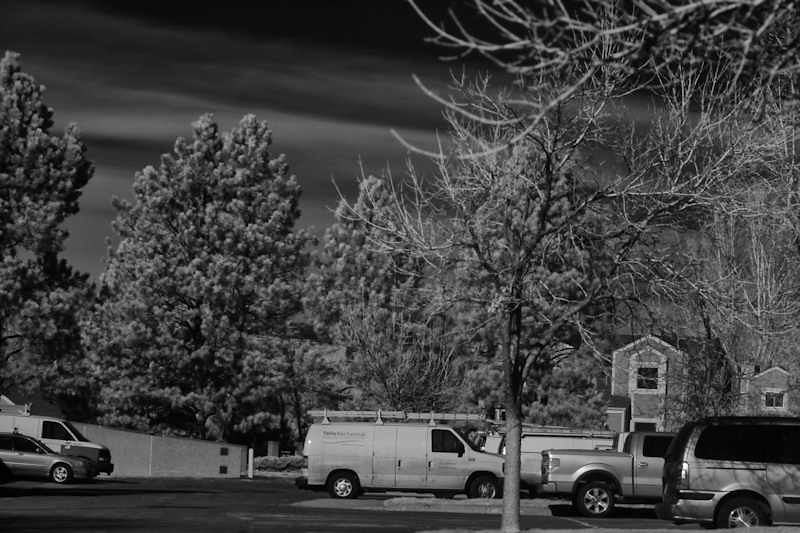
Ideally IR works best around 'high noon'. I took the following using a Canon DSLR and a R72 filter. This was about a 10 second exposure and I intentionally 'blurred' the image for the effect I wanted.
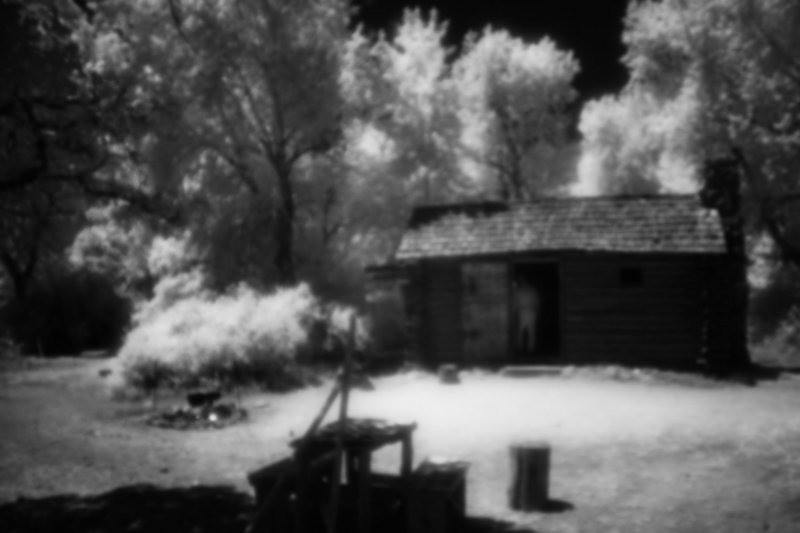
This isn't the greatest time of year for IR unless you live in the Tropics. With the Canon DSLR you'll just have to play around with it. Learn to "see" different exposures. Oh, and have fun.
![]()
cyrakitty
(32 posts)You are so awesome!! Thank you so much!! I have decided to take a digital photography course this February. So between this group and the class, I hope to emerge as a much better photographer!
![]()
You guys are the greatest!!
CC
(8,039 posts)Found one link that might help http://bythom.com/infrared.htm You can also use Google to find more. I'll try to come back tomorrow when I am more awake to answer more questions if you have more after reading. I loved IR so much I had an old camera converted to all IR all the time.
Edit for typo. I can't type when awake, even worse half a sleep.
flamin lib
(14,559 posts)The sensors are not sensitive to that spectrum. Some cameras can simulate IR via firmware and some post processing software can as well.
rdking647
(5,113 posts)the sensors are sensitive to IR but teh camera manufactorors put a filter over the sensor to block IR. you can have it removed so the camera records IR and in some cases block visible and only record IR ( I have one modified like that)
flamin lib
(14,559 posts)In practical terms digital cameras don't do IR. Sticking a filter on won't do it. Pour enough money on it and it might do UV as well or even X-ray.
Back in the days of film ya' had to set up, focus, adjust the focus for IR shift, install the filter and guess at the exposure because exposure meters don't register outside the visible spectrum. It took a lot of trial and error to learn how much IR was available.
For those wondering about the big deal with IR, it penetrates the surface of some subjects. Leaves, human skin and some other surfaces become translucent with an ethereal character. Water and glass are completely opaque and the clear sky goes black. Portraits take on a mystic air and skin seems to glow.
It's also good for super surveillance work at night. Put an IR filter on a flash and on the lens and by God you can see in the dark--can't focus for $#it but nobody knows you're there!
'Course this is all film stuff from the dark (room) age and B&W at that. T'was a most frustrating experience.
CC
(8,039 posts)filter on many digital cameras. Also it wasn't that complicated or expensive to get my old Nikon converted to IR. (Expensive relative to other camera related stuff.) You can test your camera using a TV remote. Some cameras are better at it than others though.
postatomic
(1,771 posts)Doesn't require extensive modification on most. If, at all. How do you explain the following image? It is not an IR mod camera. Just used a R72 filter and NO faux IR processing. The original Nikon Coolpix cameras are very popular still because you can easily remove the IR filter and have an IR camera on the cheap. (this image used a camera with the old Sony sensor)
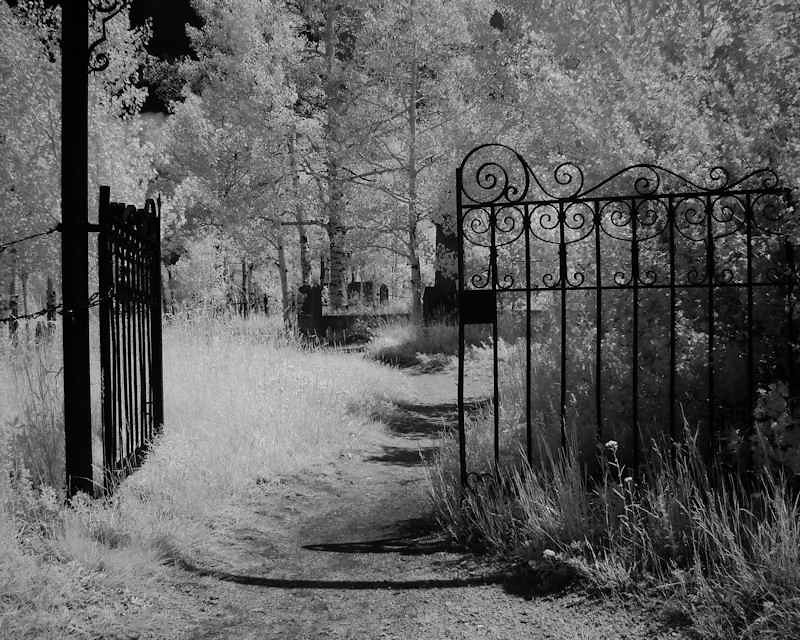
flamin lib
(14,559 posts)If you own one that needs modification, and the OP clearly does, costs range from $275 to $825. Part of the conversion is modifying the autofocus to compensate for IR shift. Of course if all you use it for is scenic at small apertures you won't need that part of the modification.
My IR experience is all film. The results can be stunning and you can see lots of examples on the web, but it's not something you just jump into and get results. Light meters are largely useless as IR intensity has no relation to visible light. Start with about +1.5 stops and bracket. Without modifying the autofocus, which hoses up the camera for visible light photography, you've got to guess at the focal point. Film cameras had an IR mark on the focus ring so you could focus using visible light then shift the focus; at 5' it's about a 1' shift nearer. Past about 15-20 feet it's negligible with lenses shorter than 2x normal.
Then ya' gotta ask yourself why the manufacturers went to the trouble and added expense of making the camera insensitive to IR. They don't add extra cost for no reason to such a price competitive commodity. Normal films were insensitive to IR, it took specialized emulsions to register it. Digital sensors, unmodified, see both visible and infrared unless you filter out one or the other.
All this said, I'd avoid having a camera modified unless it was dedicated strictly to IR. Perhaps a used body or inexpensive P&S would make sense. Once mastered the results of IR are unique and absolutely stunning in both color and B&W, but again it takes some degree of dedication to the process and learning to "see" invisible light.
But that's just me. YMMV
cyrakitty
(32 posts)any digital camera with a Nightshot setting can use the R72 filter.
I went through my manual but did not see anything resembling this setting. So I think I will take postatomic's advise and play with the ISO and aperture for now and see what I can figure out.
CC
(8,039 posts)good instructions. The only thing I would add is you might want to bracket...do a series of photos with longer shutter speeds. Keep an eye on you viewer, you can tell if you are keeping the shutter open long enough to get something and lengthen (or shorten) the exposure from there.
Welcome to the group. We love having new eyes to see through. ![]()
JohnnyRingo
(18,623 posts)Try it sometime on your TV remote. While the IR light emitted is invisible to the naked eye, the camera sees it perfectly.
MerryBlooms
(11,761 posts)Thanks for all the good wishes and excellent info. We're venturing out this weekend to familiarize ourselves with the new camera- should be loads of fun and hopefully some shots worth sharing.
Have a super weekend, all.
JohnnyRingo
(18,623 posts)I see it has a hot shoe on top. If you don't already have one, do yourself a favor and search ebay or Amazon for a flash gun. The endless options of bouncing your flash off the ceiling or using the filter that mutes the harsh shadows is rewarding indeed. It'll eliminate red eye and add incredible depth to your pix.
For about $50 you can use a great option that your camera is already set to accept.